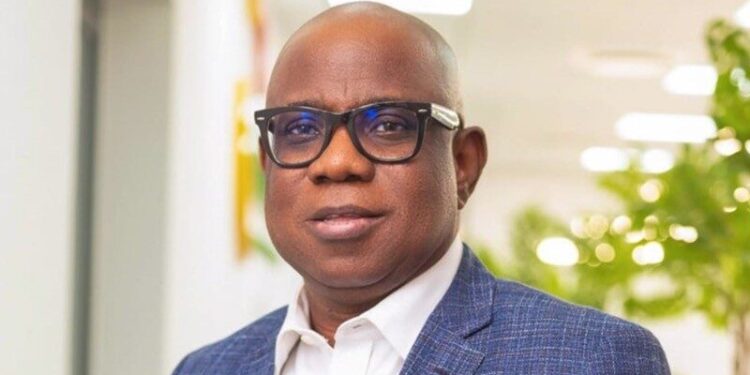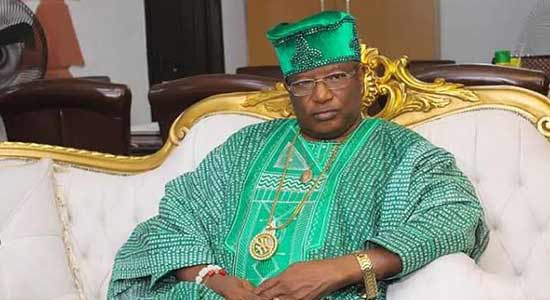An illustration depicting a kidnapping scene.
LIKE every other part of Nigeria, the South-West experienced a handful of deadly security breaches in 2022.
The security breaches were characterised by kidnappings for ransom along significant highways in Akure and Ibadan.
However, in June, the country was taken aback after gun wilding men opened fire at unarmed church worshipers at the St. Francis Catholic Church in the Owo Local Government Area of the Ondo State.
The incident, which appeared as the first mass terror shooting in the region in recent times, led to the death of more than 38 people, including women and children.
Findings by The ICIR show that more than 50 persons sustained various degrees of gunshot injuries.
The attack led to flags being flown at half-mast as a form of mourning across the six states in the region.
The Federal Government blamed elements of the Islamic State West Africa Province (ISWAP) for the deadly attack.
Although the state governor, Rotimi Akeredolu, had initially disagreed with the findings of the Federal Government, arrests made in August by security operatives in part of the state confirmed ISWAP as the perpetrators.
According to security agents, the arrested suspects are Idris Ojo, Jimoh Ibrahim, Idris Abdulmalik, Ibn Malik, Momoh Abubakar, Aliyu Itopa and Awwal Onimisi.
The incident also confirmed intel by the Nigerian security operatives that ISWAP and its rival counterpart were spreading their tentacles of terror to other parts of the country.
Apart from rejigging the manpower and logistical needs of the South-West Security Network, popularly known as Amotekun, the state government ordered additional security measures, such as the compulsory installation of closed-circuit television (CCTV) in public and private places, including religious places and bars.
Since the incident, Governor Akeredolu and his counterpart in Benue State, Samuel Ortom, have also been leading efforts towards ensuring that regional security outfits are well-equipped to fight escalating insecurity in the country.
Kidnapping for ransom…
The region also witnessed various forms of kidnapping for ransom this year. During the year, Ibadan, especially the Lagos-Ibadan expressway, were the hotbed of kidnappers.
Some of the kidnapped victims, like Adigun Agbaje, a former deputy vice-chancellor of the University of Ibadan, were lucky to be released after ransom payment, but others were not.
Agbaje was kidnapped alongside two students of Moshood Abiola Polytechnic (MAPOLY), Abeokuta, near Sat Guru Maharaji Garden on the Lagos-Ibadan expressway in October.
During the incident, a police officer was killed while another was “badly injured”.
Although the condition for his subsequent release after more than three days in captivity was not made known to the public, his kidnappers reportedly made contact with his family, demanding N50 million ransom.
Narrating his order in the hands of kidnappers, the professor said he was shot in the head by his captors.
He said the bullet went through his car’s windscreen and left a skin-deep wound on his head.
Unlike Agbaje, a United States (US) based Nigerian hotelier, Gbenga Owolabi, was not lucky to come back to share his testimony in the hands of his kidnappers.
Owolabi was abducted alongside Racheal Opadele, one of his workers who was a student of Ladoke Akintola University of Technology (LAUTECH), in the Aba area of Ogbomoso, in August this year.
The duo were thereafter killed by the kidnappers after a ransom of N5 million was paid.
In October this year, his corpse was repatriated and buried in Maryland, USA.




![Isin Kara: Business activity commences as Olusin Inspects Market [Video]](https://ideemlawful.com/wp-content/uploads/2025/08/IMG-20250812-WA0016-75x75.jpg)




![Isin Kara: Business activity commences as Olusin Inspects Market [Video]](https://ideemlawful.com/wp-content/uploads/2025/08/IMG-20250812-WA0016-750x375.jpg)


![Angry Youths loot CBEX Office in Ibadan [Video]](https://ideemlawful.com/wp-content/uploads/2025/04/CBEX-Office-in-Ibadan-News-Central-TV_78784738-768x432-1-750x375.png)









